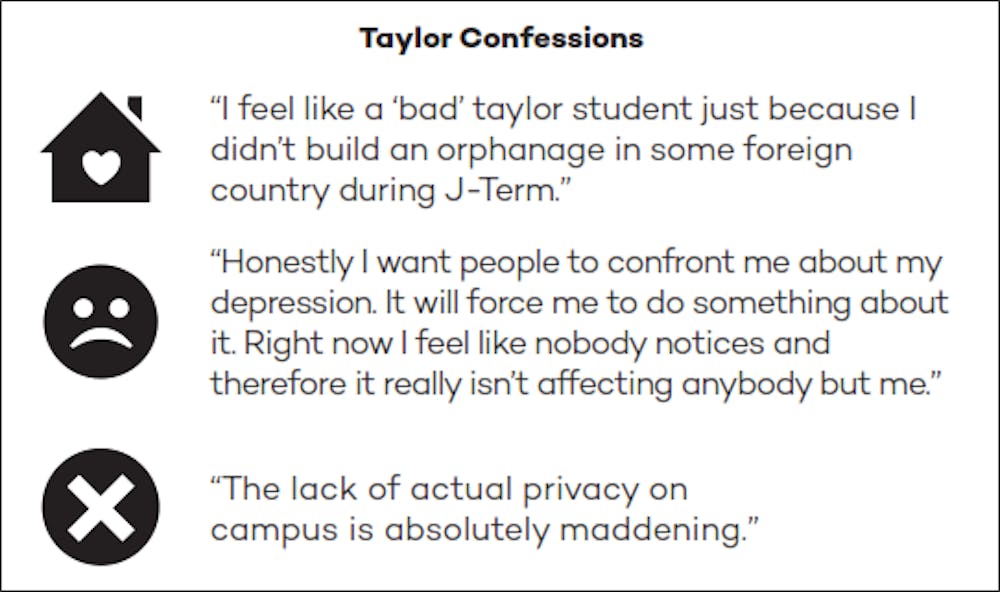I first discovered the Taylor Confessions Facebook page senior year of high school after I officially committed to attend Taylor.
When a friend's comment on the page popped up in my newsfeed, I clicked, and I was amazed and horrified by the things I read. My stomach churned as I scrolled down the Confession page's feed, growing more and more discouraged with each post. Suicide attempts, complaints about professors and administration, confessions regarding sex in the prayer chapel and more bombarded my eyes. In ten minutes of skimming, I learned more about Taylor's secrets than I have in two years of living on campus.
The Taylor Confessions Facebook page gives Taylor students the freedom to do what no one should: say whatever we want without repercussions. Life was never meant to be lived anonymously. Authenticity occurs in real life, face-to-face with real people, within the context of real relationships.
Anonymity removes the need for vulnerability. We're a culture that advocates for vulnerability while hiding behind closed doors, and once you've been vulnerable you understand why. I understand the appeal. Vulnerability is never easy, no matter how trustworthy or safe the listener. If you don't have a friend you feel safe talking to, talk to someone-a PA, your professor or even the person who cleans your bathroom.
The conversations students are having on Taylor Confessions are best reserved for friendships-whether it's admitting how alone and discouraged we feel, how we're struggling with our sexuality or how we don't know if we want to be at Taylor anymore. When we let strangers read our most intimate secrets, we allow for public criticism and unnecessary hurt. As sociologist and author Brené Brown said, "Open yourself up only to those people who have earned the right to hear your story."
I don't think these issues-strong pressure to date, loneliness, questions of identity or depression-are unique to Taylor. We are not alone in our struggles, but instead of finding comfort in our commonalities we choose to isolate ourselves and believe it's "just us."
If the mask is removed, Taylor Confessions has the potential to be a constructive influence in our community. We could use it to provide a voice to people who have been silenced. We could develop resources for our minority communities. We could help establish a support system for people who feel depressed and alone. But we've abused what could be honest and meaningful and turned it into something that is dark and bitter.
Like Ghandi so famously said, "You must be the change you wish to see in the world." If we want to leave Taylor a different place than when we came, we must do the work to make that happen.





